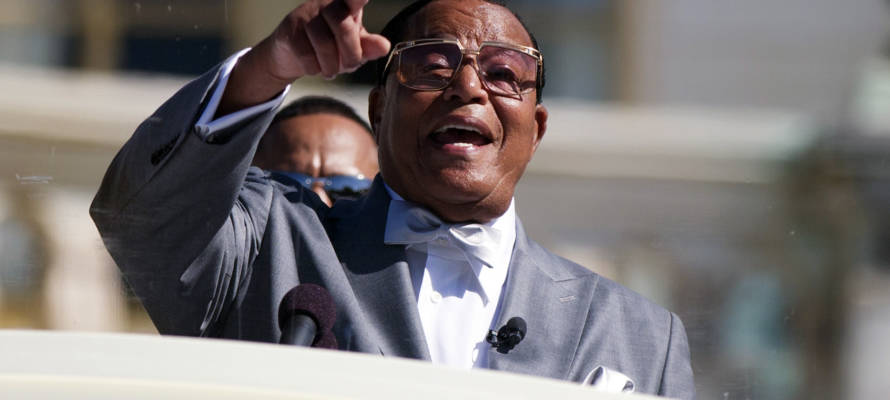The social media platforms banned the hate preacher, among others, as “dangerous individuals” based on their rampant hate speech.
By United with Israel Staff and AP
After years of pressure to crack down on anti-Semitic incitement and bigotry, Facebook booted Islamic hate preacher Louis Farrakhan, saying he violates its ban on “dangerous individuals.”
Farrakhan’s history of anti-Semitism dates back more than three decades, and includes ranting against “Satanic Jews” and comments such as the “Jews are my enemy” and “[Israel] is gonna be cleansed with blood.”
Facebook’s move to ban Farrakhan signals a renewed effort by the social media giant to remove people and groups promoting objectionable material such as hate, racism and anti-Semitism.
The company also removed right-wing personalities Alex Jones, Paul Nehlen, Milo Yiannopoulos, Paul Joseph Watson and Laura Loomer, along with Jones’ site, Infowars, which often posts conspiracy theories. The latest bans apply to both Facebook’s main service and to Instagram and extend to fan pages and other related accounts.
Removing some of the best-known figures of the U.S. political extreme takes away an important virtual megaphone that Facebook has provided to Farrakhan and his ilk over the years. But it does not address what might be done with lesser known figures and those who stay on the margins of what Facebook’s policies allow.
Critics praised the move but said there is more to be done on both Facebook and Instagram.
Dipayan Ghosh, a former Facebook executive and an internet policy expert at Harvard, said the ban isn’t as big a step as Facebook appears to be painting it — it’s just enforcing its existing policy.
“There will always be more purveyors of hate speech that try to come on these platforms,” he said. “Will advocates have to push year after year just to get (a handful of) individuals off? At this rate it seems likely. And this doesn’t address the problem of what happens at the margins.”
Facebook said Farrakhan, the leader of the Nation of Islam, violated its policy against dangerous individuals and organizations. The company says it has always banned people or groups that proclaim a violent or hateful mission or are engaged in acts of hate or violence, regardless of political ideology.
It added that when it bans someone under this policy, the company also prohibits anyone else from praising or supporting them.
In this case, though, the company said people can speak positively about the banned individuals as long as what they’re saying otherwise complies with Facebook policies.
For years, social media companies have been under pressure from civil rights groups and other activists to clamp down on hate speech on their services. Following the deadly white nationalist protests in Charlottesville, Virginia, in 2017, Google, Facebook and PayPal began banishing extremist groups and individuals who identified as or supported white supremacists.
It is not clear what events led to Thursday’s announcement. In a statement, Facebook merely said, “The process for evaluating potential violators is extensive and it is what led us to our decision to remove these accounts today.”
Last month, it extended its ban on hate speech to prohibit the promotion and support of white nationalism and white separatism. It had previously allowed such material even though it has long banned white supremacists.
